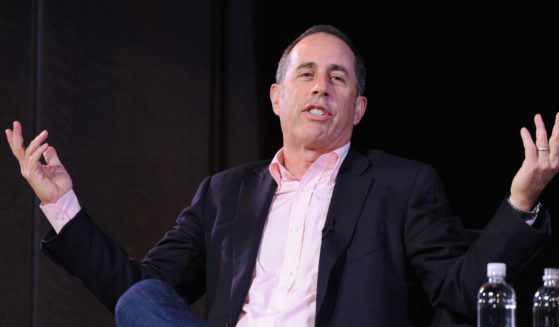Big Music Begs the Trump Administration for More Power
Instead of shredding the notes found on song sheets, music industry lobbyists are now attempting to have Attorney General William Barr shred the few remaining free market principles within their domain from the nation’s rulebooks.
At issue is the Department of Justice antitrust agreements, known as consent decrees, that have prevented ASCAP and BMI — the two biggest monopolies in the industry — from exploiting their unique position to raise prices on American consumers and businesses since the 1940s.
Naturally, the two abusive monopolies, which possess 90 percent of the nation’s performing rights to songs, want these DOJ agreements axed; what’s funny, though, is that they are pretending that removing them is the free market thing to do. In their words, “competition is a good thing” and “a free market would create a more productive, efficient and level playing field for everyone involved.”
That’s true! Competition is indeed a good thing, but taking off ASCAP and BMI’s guardrails won’t create more of it; rather, it will bring it to record lows.
Nearly 40 years ago, Ronald Reagan’s Antitrust Division cemented the conservative consensus on antitrust policy.
Recognizing that antitrust policy often hinders America’s competitive advantage on the international stage, the Reagan Justice Department recommended cutting the DOJ’s power down in size and scope significantly.
However, it also realized that sometimes, antitrust policy is essential for protecting consumers by curtailing the power of companies that shamelessly use the force of government for personal gain — hence its action taken against the Bell System phone monopoly, which benefitted from bureaucrats blocking its competitors.
As a former staffer in the Reagan White House, this is the antitrust philosophy that Barr wants to restore to the Justice Department, and the parallels between Bell System and ASCAP and BMI couldn’t be starker.
Contrary to what ASCAP and BMI may say, there is nothing free market about music publishers banding together to pool their market share together into two organizations for predatory purposes when their business models were only made possible by government intellectual property law to begin with.
That is why the DOJ created the consent decrees: to keep the companies and the efficiencies they bring to the market fully intact while ensuring they license their songs to small businesses through a single, fairly-priced license to prevent abuse. Removing these restraints would allow these Big Music behemoths to run wild with unchecked power, giving consumers and small businesses the headache of a lifetime.
The law as it stands today may appear less than ideal, but it’s proven to be the least bad option available. It’s important to remember that so long as they are not part of either of the ASCAP and BMI monopolies, all publishers can license their songs independently without hearing a peep from the Department of Justice or any other regulators.
The DOJ’s light-touch regulation only arises when they join ASCAP and BMI, one of the institutions with a proven track record of anti-competitive practices.
The Performing Rights Organizations like ASCAP and BMI serve a valuable purpose. Without them, individual artists would be faced with the impossibly costly task of protecting their works from copyright infringement.
But history has also shown that, when completely left to their own devises, the PROs will abuse their monopoly power — which they possess only because of federal copyright laws — to harm consumers.
Enriching Big Music — ironically, one of the Trump administration’s biggest, most vocal detractors — by abandoning the consent decrees would represent an embarrassing failure for a White House that claims draining the swamp as a top priority.
Hopefully, the Reagan-disciplined William Barr can be counted on to see through ASCAP and BMI’s talking points.
The views expressed in this opinion article are those of their author and are not necessarily either shared or endorsed by the owners of this website. If you are interested in contributing an Op-Ed to The Western Journal, you can learn about our submission guidelines and process here.
Truth and Accuracy
We are committed to truth and accuracy in all of our journalism. Read our editorial standards.











